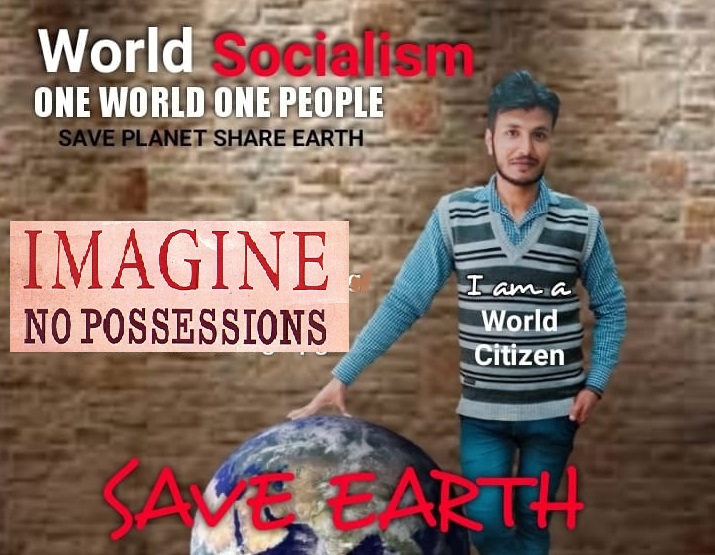
After Glasgow’s COP26, many who attended, either as delegates or protesters, go away disappointed that for all the talking, the summit had not accomplished its aims. Success was always a forlorn hope.
The World Socialist Movement is trying to get all those who have been excluded from the ownership and control of the means of production to recognise their common interest as one class within capitalist society.
Those who control one or other of the two hundred or so nation-states into which the world is divided try to prevent this practice emerging, and deliberately seek to undermine it, in the interest of the other main class in capitalist society – those who do actually own and hold control over the means of production. They seek to convince the people they rule over that they should identify with “the nation” they rule.
Immigration causes a problem for them since immigrants, having been brought up under some other state, have not gone through the same process of indoctrination and conditioning as have the “native” population.
Historians have demonstrated that a nation is not a natural community that existed before the state, but that it’s the other way round: the state existed first and then proceeded to impose on those it ruled over the idea that they formed a “nation”. The longest-standing states of Western Europe – England, France and Spain – emerged at the end of the feudal era and then had to create a national feeling amongst the population living within their frontiers. These frontiers were accidental and had been determined by a number of key battles amongst dynastic rulers in feudal times. Had the outcome of these battles been different, then southern Britain might have been part of the same state as northern France, while northern Britain might have been part of a state with Scandinavia, and southern France part of a state with Catalonia and northern Italy. That’s not how things turned out, but the point is that they could have done. States pre-existed and in a very real sense created nations. Nations are groups of people ruled by a state or a would-be state.
States that have been formed more recently – and most of the world’s states today were only formed in the last eighty years or so, i. e., have only been going for a few generations – have had, and some still have, a serious problem in convincing all those they rule over that they form part of a single nation with a common interest. It is why their nationalism tends to be more shrill and authoritarian. It has to be, to overcome the tendency of some of their subjects, especially those speaking a minority language within their state, to identify themselves with some other nationalism particularly that of a neighbouring state.
Until recently the dominant opinion amongst those in charge of government about how to deal with this was to make a virtue of necessity and pursue a policy of “multiculturalism”. It didn’t work. In fact, it has encouraged division, by getting people to identify with their “culture” rather than with the “nation”. Socialists, too, see “multiculturalism” as divisive but for the different reason that it gets workers to identify with some other group over and above their class. Now a change of policy is underway, a swing towards “assimilation”.
They are also now required to publicly pledge allegiance to the country in ceremonies akin to the patriotic flag-worshipping that aspiring applicants for US citizenship have to go through, for instance.
The members of the World Socialist Movement say that all those, wherever they were born, wherever they live or wherever they come from, who are not members of the privileged ruling class should identify with is people in a similar position throughout the world. What happens to workers anywhere is the concern of socialists everywhere. We are all members of an excluded class of wage-working wealth producers – the world’s working people who have a common interest in coming together to abolish so-called “nation-states” and establish a frontier-free world community in which all the natural and industrial resources of the Earth will have become the common heritage of all humanity, to be used for the benefit instead of, as to today, to make profits for the few. Then we would all really be members of humanity, citizens of the world, in other words – Earthpeople.